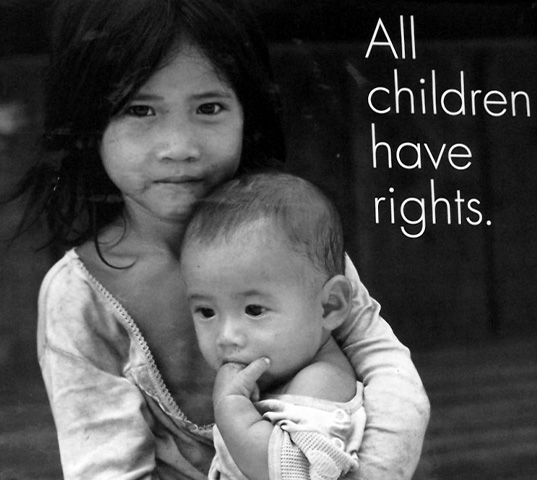The United Nations Convention on the Rights of the Child is the most widely ratified convention worldwide. In 1989, world leaders decided that children needed a special convention just for them because children and adolescents under 18 years often need special care and protection that adults do not. In 1990, Belize became the fifth country in the world to ratify the CRC.
- It is a major human rights instrument for Children, which looks at the child holistically as it incorporate the full range of human rights – civil, cultural, economic, political and social rights.
Why is the CRC necessary?
- In all countries in the world there are children living in especially difficult circumstances (abuse, hunger, abandonment etc.) and these children are in need of special protection.
- Many countries do have laws relating to child welfare, but they do not properly enforce them.
- Many countries do not ensure that there are minimum standards for the care and protection of children.The CRC heightens the recognition that children have human rights too.
These rights are unconditional and indivisible! They are based on the following guiding principles:
- All persons under the age of 18 years are subject to these rights
- Maximum survival and development
- Devotion to the best interest of the child
- Participation – respect for the views of the child
- Non-discrimination

The CRC contains 54 substantial articles that outline the inherent human rights of children. These rights can be classified into 4 general categories:
- Survival Rights
- Developmental Rights
- Participation Rights
- Protection Rights
The effectiveness of the CRC depends on how widely it is known, understood and applied. To this extent, it is imperative that children are well aware of their rights, and adults are kept informed about their obligations in this regard. As such, the CRC defends the role of parents in the lives of their children.
What about Rights and Responsibilities of Parents?
Understanding that the family is the fundamental group of society and natural environment for the growth and well-being of all its members, particularly children, the CRC highlights and defends the family’s role in children’s lives. The parents’ primary responsibility is to act in the best interest of the child. They have a responsibility to protect and promote their child’s development to his/her fullest potential. The CRC upholds the primary importance of the parents’ role by recognizing and respecting their responsibility to guide their children, including guiding the way their children exercise their rights. However, if a child’s best interest is not being supported through appropriate parental direction and guidance, others can intervene on behalf of the child.
- Article 5: Governments should respect the rights and duties of parents
- Article 9: to maintain relationships with both parents and be reunited with parents if separated
- Article 18: Governments should provide support to parents to fulfill their responsibilities to their children.
By agreeing to undertake the obligations of the Convention, national governments have committed themselves to protecting and ensuring children’s rights and they have agreed to hold themselves accountable for this commitment before the international community. The government of Belize, as a signatory to the Convention on the Rights of the Child, has an obligation to develop and undertake all actions and policies in the light of the best interest of the child.
